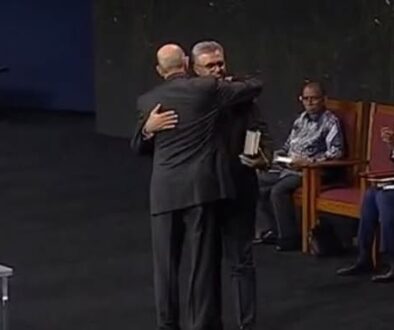Specific Approvals Voted Under the New Policy of No Gender Discrimination in Ordination
by AT News Team
Several local conferences in North America are preparing to conduct ordination services for women pastors in the next few weeks. The first could be as early as October 6 at the Loma Linda University Church, according to Spectrum, the journal of the largest organization of Seventh-day Adventist academics.
At constituency meetings this past summer both the Pacific Union Conference and the Columbia Union Conference voted by overwhelming majorities of delegates to end the practice of excluding women from ordination to the gospel ministry. On September 7 the Pacific Union executive committee voted routine approval of 16 candidates submitted by local conferences of which 14 are women. September 26 the Columbia Union executive committee will meet and it too has routine requests from local conferences that include women candidates.
At least three local conferences among the eight that make up the Columbia Union will have women who will be recommended for ordination, according to sources that talked to Adventist Today on condition of they not be identified. This executive committee has approved individual candidates for ordination who are women as long ago as a quarter century, but union officers asked the local conferences involved to hold off implementation at the request of the General Conference.
The voted taken by the Pacific Union executive committee was without debate or drama, but “tears and praise did come before the meeting was over” in reaction to the historic moment, according to a spokesman for the union conference was present. Some women who are near retirement have waited their entire careers as Adventist ministers for this to occur. Some younger candidates will be ordained at about the same point in their life that men serving as pastors have usually been ordained over the last 150 years.
“It is ironic that this has taken so long to come,” a veteran church administrator told Adventist Today. “Early Adventists had no problem with women serving as ministers and the most important cofounder of the denomination was a woman. General Conference delegates evidently approved the concept in principle as early as 1881.” Because the General Conference has no control over the Seventh-day Adventist Church in China, the church there has been doing so since the 1980s, about the time that repeated studies of the topic began.
Since the 1990 General Conference Session in Indianapolis the denomination has been at an impasse on the issue, unable to come to a definitive position. Almost all of the Bible scholars in the denomination agree that Scripture does not prohibit ordaining women, yet delegates have repeatedly voted against it. Because the denomination’s Working Policy gives union conferences the authority to approve candidates for ordination, several of these units have decided to move ahead and bring an end to decades of indecision.



